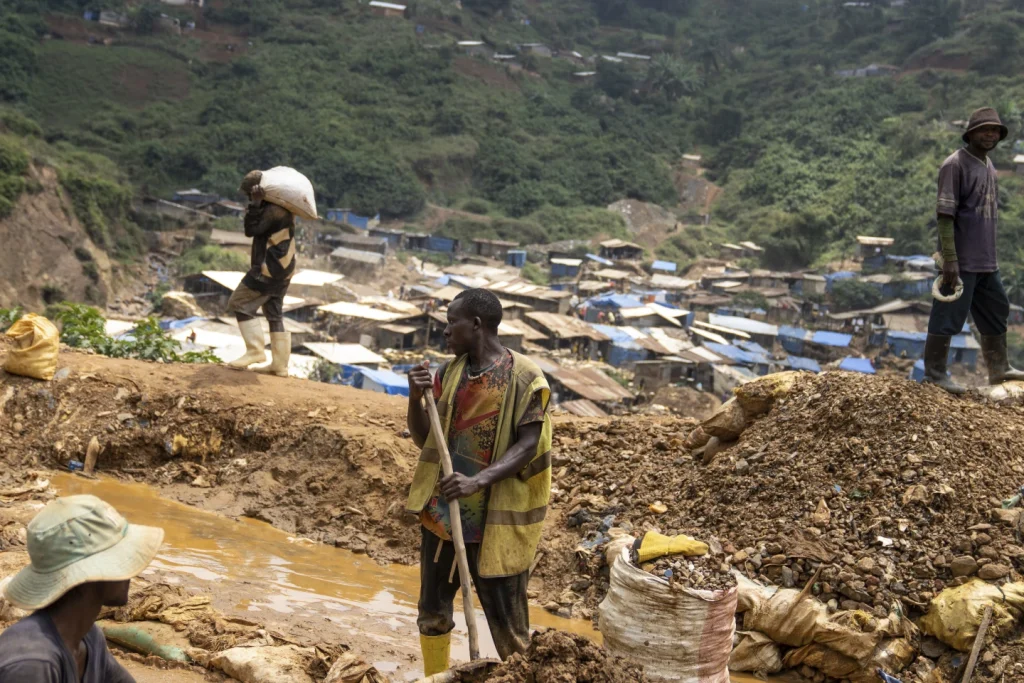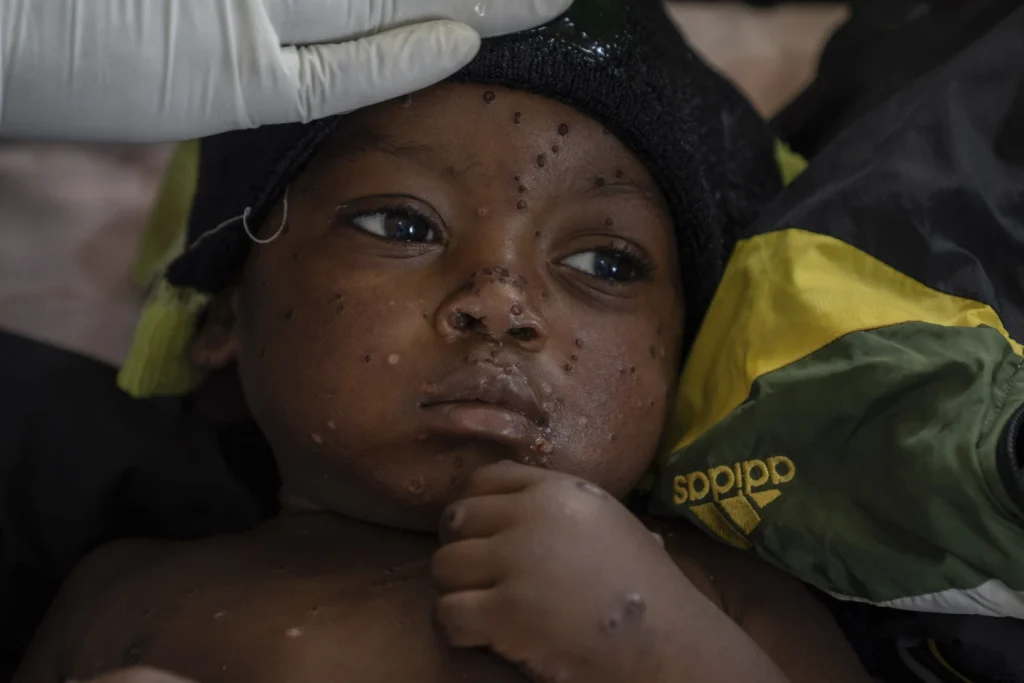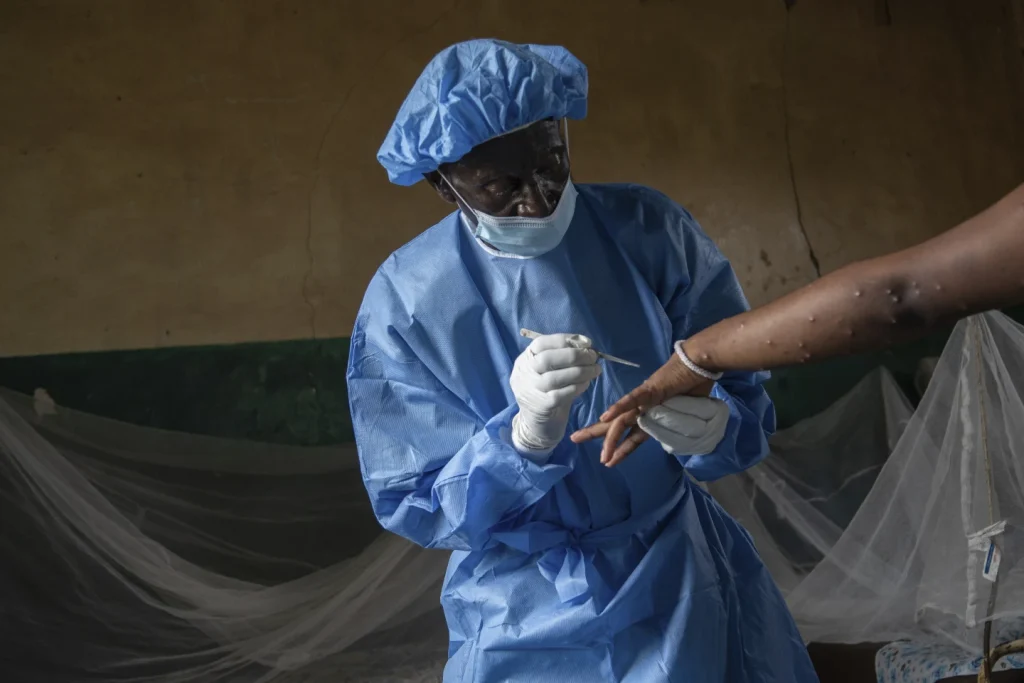In the heart of Central Africa lies the Democratic Republic of the Congo (DRC), a nation grappling with a myriad of socio-economic, political, and health crises.
Among these challenges is the alarming outbreak of mpox, formerly known as monkeypox, which has seen significant increases in incidence this year, placing additional strain on an already beleaguered healthcare system.
This essay aims to elucidate the complexities surrounding the mpox outbreaks in Congo, exploring the historical context, the current state of the epidemic, the compounded challenges posed by ongoing conflicts, and the public health responses that are urgently required.
Congo is no stranger to mpox, with the disease endemic in the region for decades. Mpox is a viral zoonotic infection caused by the monkeypox virus, a member of the Orthopoxvirus genus, which is also responsible for smallpox.
Though mpox typically presents milder symptoms than its more infamous relative, smallpox, it can still induce significant morbidity and mortality.
With over 21,000 confirmed and suspected cases this year alone, according to the World Health Organization (WHO), Congo accounts for a staggering proportion of the mpox cases reported across Africa.
The recent surge in mpox cases has been particularly concerning, as a new strain identified in September 2023 within Congo’s eastern province of South Kivu has shown potential for increased transmissibility.
This strain’s emergence highlights the evolving nature of the virus and raises alarm about the ability of health authorities to respond effectively.
The WHO has recently declared the mpox outbreaks in Congo and a dozen other African nations a global health emergency. As health institutions scramble to contain the spread of the virus amidst a backdrop of conflict and humanitarian crises, the difficulties inherent in this task become apparent.
The DRC, with its vast, often inaccessible territories, faces logistical hurdles that complicate outbreak management.
The outbreak in South Kivu, which has since spread to neighboring provinces like North Kivu, underscores the urgent realities of containing an infectious disease in regions marked by violence and instability.
Eastern Congo has been afflicted by violence and armed conflict for years, with over 120 active armed factions grappling for control over valuable mineral resources.
This violence has generated one of the world’s largest displacement crises, with more than 6 million individuals forcibly relocated and seeking refuge in camps or nearby towns. Such complexities create a perfect storm for the spread of infectious diseases, including mpox.
Healthcare facilities, already stretched far beyond capacity, struggle to meet the needs of a population traumatized by conflict. Dr. Musole Mulambamunva Robert, the medical director of a hospital in Kavumu, describes the situation as “truly a challenge,” with patient load occasionally reaching four times the hospital’s capacity.
This environment renders effective disease management nearly impossible, as the health infrastructure buckles under the weight of multiple concurrent crises, such as cholera, malnutrition, and undiagnosed conditions like HIV, which further exacerbate patient susceptibility to severe mpox cases.
Access to healthcare in eastern Congo is impeded by unreliable transportation networks, with many communities out of reach of health clinics.
Road conditions are poor, and navigating waterways can be perilous, leaving many without the medical attention they desperately need. As noted by health officials, the lack of basic resources like soap and clean water compounds vulnerability to infections, including mpox.
The WHO’s declaration has galvanized international attention, yet critical gaps remain in Congo’s capacity to combat mpox effectively.
Although approximately 250,000 doses of mpox vaccines have arrived in the country, health authorities indicate a need for around 3 million doses to achieve sufficient coverage.
Currently, the vaccine is approved only for adults, with scant research detailing its effects on children, who represent an important segment of the population at risk.
Despite the critical need for vaccination, experts like Emmanuel Lampaert from Doctors Without Borders emphasize that vaccines should be considered as “an additional tool.”
The effectiveness of public health strategies will hinge on swift case identification, isolation of infected individuals, and the implementation of grassroots health education campaigns.
Health workers in eastern DRC have expressed the need for more training in mpox management to ensure that healthcare providers are equipped to handle the complexities of the disease effectively.
The stark disparity in the allocation of resources and international attention between the recent health crises of Ebola and COVID-19, juxtaposed with the relatively languid response to mpox, has become a focal point of critique among public health experts and advocates.

This dissonance is not merely a reflection of the immediate public health challenges presented by these viral outbreaks, but is fundamentally rooted in systemic inequities that pervade global health governance.
As articulated by Professor Ali Bulabula from the University of Kindu, this phenomenon can be attributed to the perception that Ebola, often characterized as the most dangerous virus in existence, alongside the unprecedented socioeconomic disruption caused by the COVID-19 pandemic, command far greater urgency and financial commitment from both national governments and international organizations.
In contrast, mpox, despite being classified as a public health emergency of international concern, has not elicited a proportionate response, primarily due to a prevailing perception that it is merely a tropical disease confined to the African continent, devoid of significant implications for Western economic interests.
This lack of depth in research and engagement surrounding mpox highlights a troubling pattern of selective international health attention that ultimately undermines the global commitment to equitable health responses, particularly for diseases that disproportionately affect lower-income regions.
The hesitance to invest in mpox research and intervention strategies not only perpetuates health disparities but also poses a risk of future outbreaks that could transcend geographic boundaries, thereby underscoring the urgent need for a reevaluation of global health priorities that transcends economic and geographical biases.
The outbreak of mpox in Congo is a multifaceted crisis that reflects the intersection of health, politics, and social instability.

As the DRC battles the immediate challenges posed by this infectious disease, it also contends with a historical context of endemic mpox, compounded by ongoing conflict and humanitarian challenges.
The local healthcare infrastructure is overwhelmed, and the attempts to manage the crisis are hindered by significant gaps in resources and training.
Going forward, a coordinated global health response will be essential to support Congo’s public health authorities in their efforts to manage the mpox outbreak.
Efforts must prioritize vaccine distribution, training for healthcare workers, and the establishment of efficient communication and transportation networks to ensure that aid reaches those most in need.
Ultimately, addressing the mpox crisis in Congo requires a comprehensive, nuanced understanding of the complexities involved and a commitment to invest in sustainable health solutions that transcend the immediate challenges of this outbreak.
The health of the Congolese people, particularly in the beleaguered regions of eastern Congo, hinges not only on the control of mpox but also on addressing the broader structural issues that underpin public health in this vulnerable nation.
